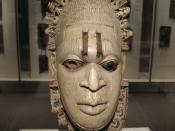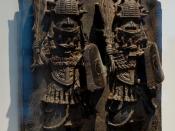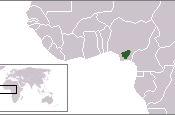Nigeria - An Introduction
Nigeria, with an estimated population of 170,123,740 (July 2012 est.) (CIA World Factbook) is the largest black nation in the world. The Federal Republic of Nigeria, as it is officially known, covers an area of 356,669 square miles on the coast of West Africa. Its borders are contiguous with the Federal Republic of Cameroon to the east, Niger Republic to the north and Benin Republic to the east. In the northeast, Nigeria has a 54-mile long border with the Republic of Chad, while its Gulf of Guinea coastline stretches for more than 500 miles from Badagry in the west to Calabar in the east, and includes the Bights of Benin and Biafra. Today, Nigeria is divided administratively into thirty-six states and the Federal Capital Territory of Abuja.
Like Africa as a whole, Nigeria is physically, ethnically, and culturally diverse. This is partly due to the fact that Nigeria is today inhabited by a large number of tribal groups, according to the Encyclopedia Britannica, an estimated 250 of them speaking over four hundred languages, many with dialects. Muslims and Christians comprise more than 80 percent of the population while the rest are identified with indigenous religions. However, Nigeria's greatest diversity is in its people. Nigeria have so much culture and history that it is imperative to chronicle this history as it relates to their current economic and political struggles. Dating back to the kingdoms and empires of the early seventeenth century, from their involvements in the Atlantic slave trade to its entire merger, this extensive history has blended down to what is currently Nigeria and is thus necessary in order to understand what has become of this once fruitful and promising state.
The three largest and most influential ethnic groups in Nigeria are the Hausa, Igbo...


